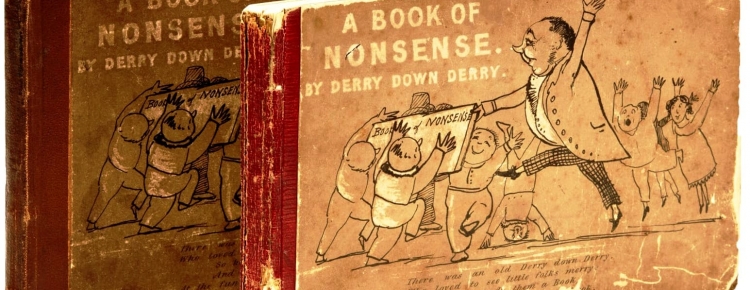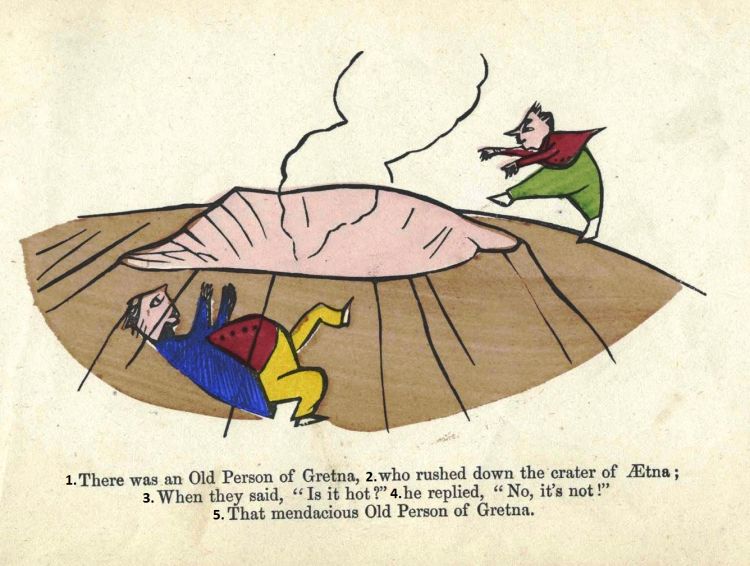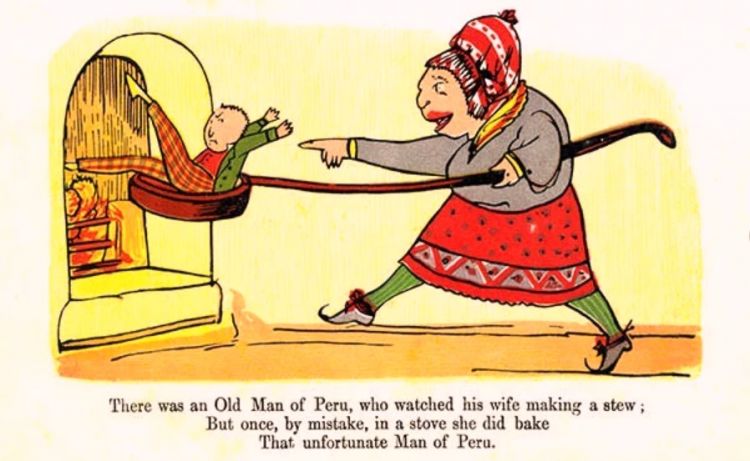
Edward Lear’s limericks are a great tool for learners to practise reading, from beginners to more advanced.
What is the limerick?
But what is the limerick? His writing style is nonsense verse, which can be absurd in tone, and he is widely recognised for his popularisation of it. The word absurd means something illogical and absurd, silly, out of the ordinary, and contrary to common sense. And limericks can definitely be described as nonsensical. There are other absurdists in literature, some of whom were the poet’s followers. Lear's nonsense poetry had an influence on the work of Lewis Carroll, French surrealists, Russian poets from the Association of Real Art (for example, Daniil Kharms was a fan of Lear), and then on rock poetry, as well.
Limerick is a unique poetry genre that originated in England and later became popular all over the world thanks to the work of Edward Lear.
A Structure
Actually, Lear himself used to call his works nonsense rhymes, and the word limerick first appeared in print in 1892, after Lear's death, in honor of the city-county of Limerick in Ireland.
So what is good about limericks for those who have just started learning English?
First of all, all of Lear’s limericks have a similar syntactic structure which reduces stress for learners while reading. What do his poems include?
Traditionally, a limerick is a poem consisting of 5 lines.
- The first line gives information about the character’s name and where they are from (a geographical location);
- The second line tells about what the character has done or what happened to them, and some of their features;
- Then we learn about the consequences of the character’s actions or features;
Let’s have a look at the example below where all three elements can be found:
Vocabulary
The second benefit is that a reader will come across a lot of common words and phrases, such as items of clothes, types of food, and even epithets. You will also learn geographical names.
What else is valuable? It is difficult for the reader to predict the further development of the plot in these verses. This is because there are few typical and stereotyped connections in them, and we already know why: in absurd literature, the author’s logic is not so easy to understand.
Let me give you one more example (look at the picture below): 
"There was an Old Man of Peru,
Who watched his wife making a stew..."
Could we imagine after reading the second line that the story of this couple would have such an unfortunate ending?
"But once, by mistake, in a stove she did bake
That unfortunate Man of Peru."
An unexpected plot
The unexpected plot of poems and vivid images contribute to memorization of new words, and I’d list it as the fourth advantage of reading limericks.
And finally, as the last benefit, I’d name the fact that limericks can be interesting not only for beginners. They are a significant part of British culture since they are read from childhood there. And that is why for us, people who study English, it is quite important to get acquainted with this cultural phenomenon. Reading them will help form some knowledge about the culture, which will make you look pretty educated in the English-speaking society. Moreover, limericks help submerge into the culture of the English, to recognize some of its features. One of them is respect for the individual characteristics of each person, no matter how strange they may seem.
Let's write limericks ourselves
Dear learners, my recommendation would be to not only read limericks but to write some yourself. It masters our language skills greatly. Once, I got inspired and this is what I came up with:
"There was a young man of Dodge,
Who never looked at his watch.
But to other's surprise,
He was always on time
That intuitive man of Dodge."
My tips for you
At the end of this article, I prepared a couple of tips for reading limericks:
1. Try to avoid translated poems, as they might contain words and phrases that differ from the original version. In fact, a translated poem is basically a new poem.
2. Lear was not just a poet, he was also an artist, who illustrated limericks himself. That is why the best way to read them is to read and look at the illustrations.
Lear’s limericks can be found in his books "The History of Sixteen Wonderful Old Women", "Anecdotes and Adventures of Fifteen Gentlemen", "A book of Nonsense", and so on.
I wish you good luck with reading limericks and learning English!































